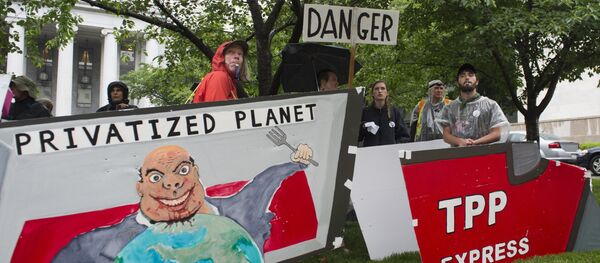Embarrassingly, it seems the United States, also known as "the sole super-power" or the "global hyperpower" has chosen the latter way to ensure its global dominance.
Instead of building some local or global structures, facilitating the development of other nations, the United States has devoted itself to perpetual destruction.
"Now, it seems as if breaking is all it can do, or how to explain the fact that, in this century, the planet's sole superpower has specialized-see Iraq, Yemen, Libya, Afghanistan, and elsewhere-in fracturing, not building nations," as American publicist and a creator of the Tomdispatch.com website Tom Engelhardt underscored.
After Washington's main rival, the USSR, collapsed, the United States obviously lost its chance to win the hearts and minds of peoples of the world, luring itself into a series of endless wars and overseas interventions and consigning to oblivion its own domestic problems, such as growing inequality, a fading middle class and severe racial tensions within the country.
"Between 2000 and 2010, 55,000 US factories closed and 5 million to 6 million manufacturing jobs disappeared. Columnist Terry Jeffrey writes that, since 1979, the year of maximum US manufacturing employment, "The number of jobs in manufacturing has declined by 7,231,000 — or 37 percent,"" US conservative political commentator Patrick J. Buchanan pointed out this May.
Does it mean the United States is now over the hill, facing the decline of its power?
"The American Century, proclaimed so triumphantly at the start of World War II, will be tattered and fading by 2025, its eighth decade, and could be history by 2030," J.R.W. Smail Professor of History at the University of Wisconsin-Madison Alfred W. McCoy warned in 2010.
Whatever the answer would be, it is clear that while rushing to come out on top the United States has obviously chosen the wrong path.




